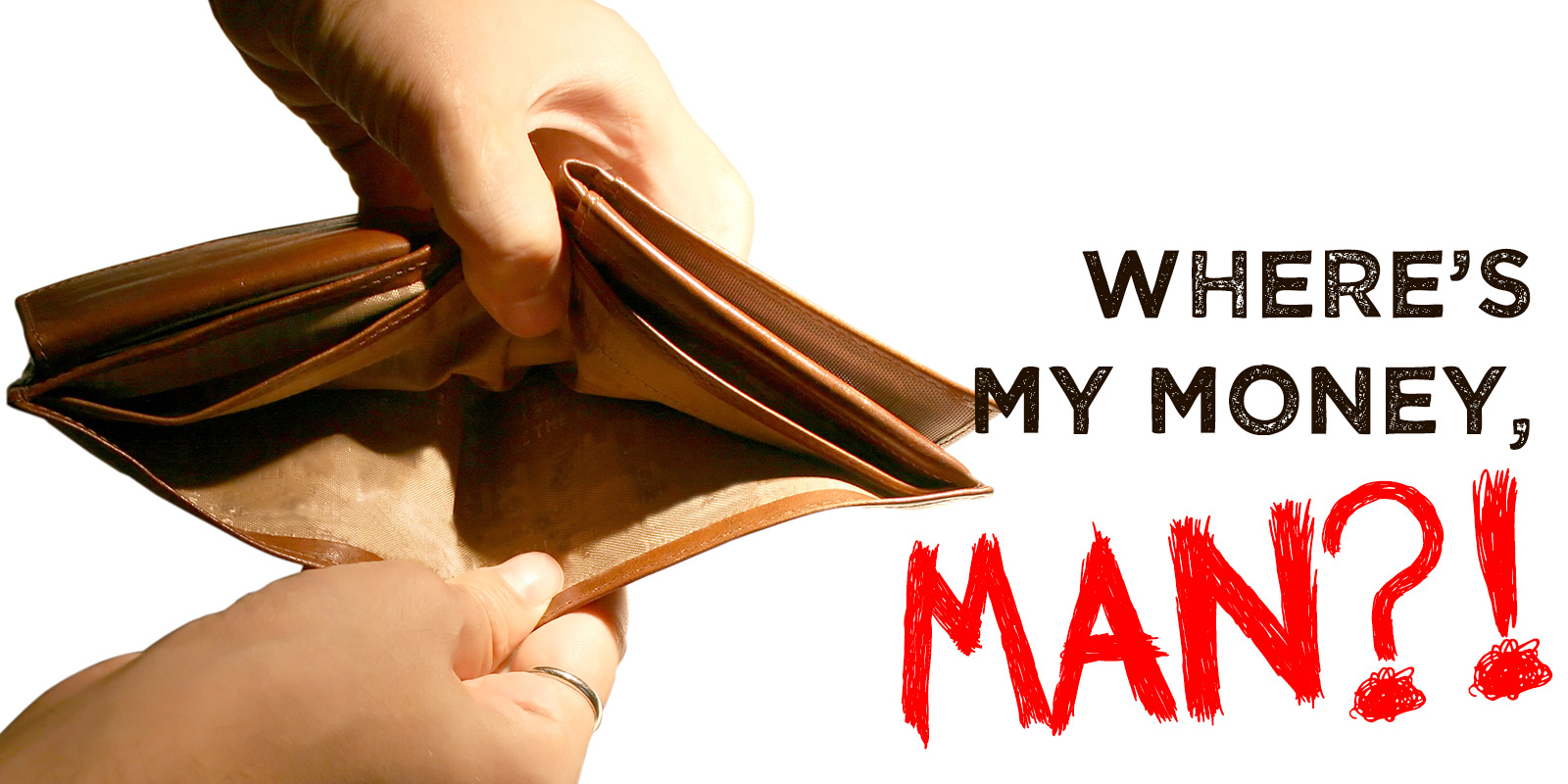You started your business because you believed that you had something of value to offer to customers. You put your name, money and reputation into your business. It’s personal. How could it not be?
You get the ball rolling, and you bring in new customers, the kind of customers you hope to have for years and years. You know some of these guys and gals on a first-name basis. Maybe some of them even live down the street, or you run into them at the grocery store.
It is inevitable that one day, one of those customers is not going to pay. And let me tell you, it’s awkward and uncomfortable for everyone. It’s one of the worst situations to be put in, and there is never an easy way out. But there is a way to never get into that situation in the first place, and that is the smartest move you can make as a business owner when it comes to getting paid for what you provide. That move, simply, is to get paid first and then give the service or the product.
We all want to believe in the goodness of people, especially when they’re our customers, and while it’s great to have a big heart as a business owner, a big heart doesn’t fix the red in the ledger.
The following excerpt is from my new book, “Uncomplicate Business: All It Takes Is People, Time, and Money.”
Excerpt: Collecting money at the time of sale is the most important insurance policy you can have in order to stay in business. You can’t give someone $1,000 worth of goods and services and get paid ninety days later, because you need ninety days worth of cash to maintain your operations—to pay for labor, supplies, rent, mortgage, equipment, computers, insurance, and software—while you’re waiting to get paid. So if your business does $100,000 a month in sales, you effectively need $300,000 in savings because you’re getting paid three months behind.
The geniuses at business reverse this strategy; they collect all of their money at the time of sale and then they pay all of their bills three months down the line—effectively getting a $300,000 loan at zero percent interest.
This is why selling traveler’s checks was one of the most profitable businesses in America for a century. Before going on vacation, consumers bought travelers checks that weren’t cashed for days, weeks, maybe even months. That traveler’s check company basically sat on a mountain of free cash. …
At one of my recent seminars, I was asked, “What do you do when you practice in a town of five thousand people and one of your patients hasn’t paid you for six months?” …
Reluctantly, I responded to the dentist that he had a couple of options, neither of them good. As the dentist, you can turn Mr. Jones over to collections, which will likely ruin his credit, which means every time you run into Mr. Jones at the bank or the grocery store, you each will feel major pangs of guilt—or worse. Or, you can write off Mr. Jones’ bill, but that only suggests to Mr. Jones that the dental work he received might not have been quality, because you aren’t valuing it. …
At most dental practices I see, the patient comes in with a problem, the doctor treats it and then spends the rest of her time tracking down the money owed to her.
But you can avoid it!
Consider fast-food restaurants. Does McDonald’s have collection problems? No! And why?
- They take your order.
- They take your money.
- They give you what you ordered
No teenager behind the counter at McDonald’s has a problem asking for and collecting money from the customers, because of one simple policy: no food unless you’ve paid for it.
Why not make all of your customers read and sign a collections policy that states they have to pay their share up front, instead of this ridiculous backward way so many businesses operate under—many of them failing as a result? …
Let me make this real simple. If your business sells something for three dollars and it costs two dollars in overhead to make it, then your profit is one dollar. If you don’t get paid your three dollars, you still spent two dollars making it, so that means the next two dollars of profit is going to pay for overhead and expenses that went into the product you should have sold for three dollars. …
I cannot stress enough: get paid for your goods and/or services up front. Get cash. Get a credit card. Outsource to a finance company. However you do it, get paid at the time of sale.












agreed, getting paid at point of sale should be the way for dental professionals and other niches as well
After I took some management training, I started doing this over 20 years ago. When I told my staff what I intended to do, they objected! “Well, what if THIS, or what if THAT…” Over the years, and having helped out in a number of offices of all types, I find that “being polite” and “having good manners” gets in the way of EFFECTIVENESS.
No patient ever objected to paying their share. Not only that, I estimated on the HIGH side, and patients agreed with me that they’d rather get money back from me then get a bill from me later.
You can be polite, or you can be effective. And, more successful.